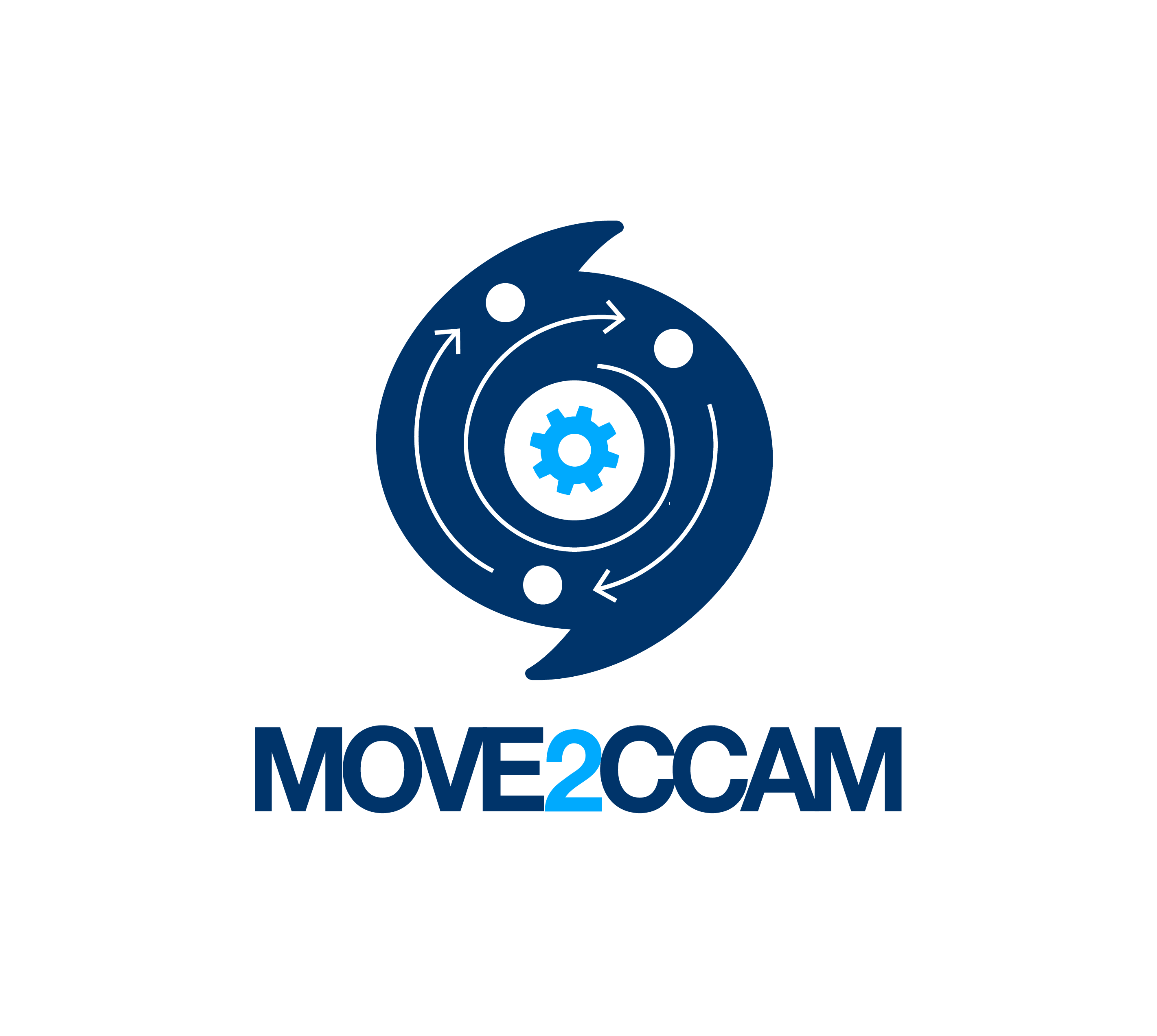Stuttgart, Germany, September 14, 2022: BABLE Smart Cities hosts the Kick-Off Meeting of the MOVE2CCAM project.

About MOVE2CCAM
CCAM systems are thought to be one of the most promising transportation solutions, having a significant impact on urban growth and serving as a key enabler of the sustainability of the transport ecosystem. The transportation and urban planning communities have made extensive attempts to investigate and quantify the effects of CCAM system designs for passenger and freight transport on mobility, socio-economic factors, and environmental factors as a result of this promising potential for CCAM solutions.
In order to configure, test, and assess the system-wide impact of new CCAM interventions (for passenger and freight), as well as a variety of complementing policies, the MOVE2CCAM project envisions the creation of an innovative and useful CCAM impact assessment modelling tool. The MOVE2CCAM Impact Assessment Tool (IAMT) will be built on system dynamics techniques, which are understudied and rarely used in the transportation industry but allow for modelling multifaceted/multi-stakeholder ecosystems and their components’ behaviour based on straightforward causal relationships and simulating the evolution of the system’s dynamics and interactions over time.
“MOVE2CCAM aims to leave a legacy,” said Maria Kamargianni, Professor of Transport Systems Innovation and Sustainability at UCL, said at the beginning of this event while introducing the project. Suzanna Kraak, Policy Officer at European Commission, adds that the real value of MOVE2CCAM is prioritising societal and individual needs and challenges to develop a responsible innovation. “This project brings public and private actors to harmonise and jointly define the Research & Innovation landscape for the next years, plus making mobility fair and just for all”.
To achieve this goal, Horizon Europe will support this project by providing financial needs, facilitating collaborations, and strengthening the impact of research and innovation in developing, supporting, and implementing EU policies.

About the Partners
Three small-to-medium enterprises, one start-up, two research entities and three public authorities will be the partners behind this impactful project. The project is supported by the Horizon Europe Research and Innovation Programme, which promotes collaboration to tackle climate change, helps achieve the UN’s Sustainable Development Goals and boosts the EU’s competitiveness and growth
UCL has expertise in open science, and different types of market research including also vulnerable population groups, user requirements analysis, impact assessment frameworks, and policy recommendations, and will lead the data collection tools design and the analysis of the organisations´ and citizens’ needs and impacts (WP3). UCL as one of the top 10 universities in the world has a strong network and it will significantly support the building of the Satellites. UCL ERIO European Research and Innovation Office (two UCL departments participate) has extensive experience in managing European-funded projects and will support BABLE with the management of MOVE2CCAM(WP6).
BABLE has expertise in supporting transitions in urban environments through business models and has thousands of subscribers in their platform, is responsible for the CCAM prototype business models, the dissemination and exploitation of the outcomes, the project coordination with the support of UCL, and contributes to building the Satellites.
MOBY X is a transport-related software development company, and it will lead the development of the IAMT and the Data Warehouse (WP4).
Britain Thinks has a strong team with a background in SSH (psychology, sociology, communication) and extensive expertise in stakeholders’ engagement and has successfully delivered a project using similar engagement methods for organisations and citizens to the UK Department for Transport; as such it is the ideal partner to lead WP2, the building and engagement of the Satellites and contribute to the design of the data collection tools and citizens impact analysis.
Hakisa has a citizen engagement platform used by several companies to engage with the community and understand their needs for designing their products; as such, it is involved in the data collection tools design.
CARTIF is a multidisciplinary research institute with expertise in social and environmental lifecycle analysis and use cases, scenario and KPIs building leading WP1 and T3.7.
Helmond is a medium-sized city having done several steps towards adopting CCAM solutions; HEL organises the Satellites engagement activities in the area, hosts the AV demonstration, and leads the efforts of providing feedback to develop the IAMT.
GZM is a metropolitan area consisting of 42 cities/towns and offers a unique opportunity to test and validate the IAMT, explore CCAMs impacts for within-the-city and intercity mobility as well as reach rural and elderly citizens.
The Aegean Islands is also a unique region consisting of nine islands -including Lesvos where several ethnic minorities exist- allowing us to explore the CCAM needs of several vulnerable population groups. All three authorities contribute to the Satellites building and engagement, translation of material, and dissemination, while the consortium will provide to them with valuable insights and tools.
UCSB has expertise in analysing CCAM user requirements, needs and impacts and it will support the organisation of the training course in the US.

Next Steps
In the coming months, each of the partners will start the first stages for each of their work packages. The strategic tasks include creating the identity of the project and designing the communication kit and strategy, establishing ecosystem analysis to identify the actors that are related to CCAM solutions, identifying the stakeholders and the needs and priorities that conform to the Satellites, designing the data collection tools needed for the co-creation activities, delivering the data management plan and initiating the secondary data collection, analysing the social and environmental lifecycle, and designing the data warehouse.




